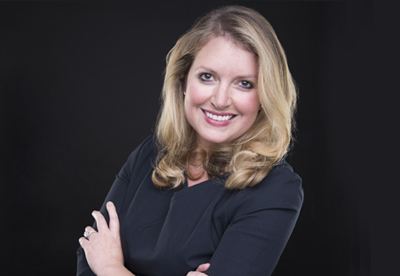A flexible approach?

Is mediation a better route for dispute resolution in the UAE? Bridget Butler highlights the advantages…
The growth of the UAE as centre of trade and commerce has been accompanied by international investment and agreements. This in turn has led to the widespread use of Alternative Dispute Resolution (ADR), and in particular, arbitration. Whilst some of these methods of dispute resolution have become more formalised in recent years (for example, with the establishment of institutions such as the DIFC-LCIA Arbitration Centre), ADR is not, conceptually speaking, new to the region. Conciliation, and referring disputes to a person of neutral and objective standing, are well established in Arab and Islamic traditions, and remains as relevant as ever today.
What is the difference between mediation and conciliation?
Mediation is a negotiation, but with the addition of a neutral person who actively assists the parties in working towards a negotiated agreement of a dispute. Ultimately the parties are in control of the decision to settle and the terms of any resolution.
Conciliation is similar to mediation but with one important difference, in that the neutral person takes a relatively activist role, putting forward terms of settlement or an opinion on the case.
What are the benefits of mediation?
The often cited advantages of mediation are confidentiality, cost, and speed of resolution. It is heavily solutions focused and offers the possibility of creative, flexible outcomes rather than simply monetary damages, leading to the relatively high success rate of mediation. Other, perhaps less obvious benefits, of mediation include:
- Preservation of an ongoing commercial relationship, which might otherwise struggle to recover from the allocation of blame which underpins determination of legal liability in formal proceedings.
- An opportunity for the parties to explore the emotional aspects of a dispute in a manner that cannot be accommodated in the confines of court or arbitral proceedings. Sometimes, that is all that is required for the parties to move forward.
- The parties exerting a high degree of control in respect of the scope of the dispute and terms of mediation, the timetable, venue, and mediator, all of which can enhance the prospects of the mediation succeeding.
Trend towards mediation and conciliation
Whilst there are of course some disputes which are not suitable for mediation, in my view, mediation is an extremely powerful dispute resolution tool. Indeed, there appears to be a general momentum in favour of mediation and conciliation in the UAE as evidenced by:
- Establishment in May 2016 of the Mediation Centre, sponsored by the private office of His Highness Sheikh Saeed Bin Ahmed Al Maktoum. The Mediation Centre aims to promote resolution of commercial disputes via a combination of the conciliation process embedded in the traditions of the UAE and modern mediation techniques.
- Support of the Dubai Courts for the use of mediation as a preliminary step in court proceedings via the Centre for Amicable Settlement of Disputes, which was established in 2012. Certain types of claims (such as those relating to commonly owned property) cannot be filed at the Dubai Courts unless they have been first subject to mediation under the auspices of the Centre. Similarly, the Rules of the DIFC Courts 2014 encourage parties to consider the use of ADR.
- The recent introduction of Federal Law No. 17 of 2016 Establishing Conciliation and Reconciliation Centres of Civil and Commercial Disputes, which enables conciliation and mediation centres to be established under the jurisdiction of First Instance Courts as a pre-action measure. It is yet to be seen how this will interplay with the existing frameworks in place, such as Dubai’s Centre for Amicable Settlement of Disputes.
- The launch of the DMCC Disputes Centre, which, in response to feedback from DMCC member companies now offers a mediation service in respect of commercial disputes. This is an expansion of the well-established mediation service DMCC offers to its member companies and their employees in respect of employment disputes.
In the context of the global economic climate and the significance for business to maintain cash flow through cost-effective and fast dispute resolution, it is my view that the role of mediation and conciliation in the UAE will continue to grow at a fast pace.
Columnist:
Bridget Butler, director of legal, DMCC














































































































